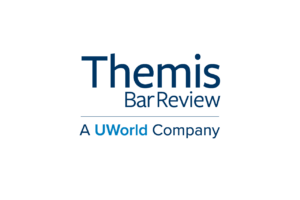Ninth Circuit Dumps Lawsuit Against YouTube Brought By Anti-Vaxxer Whose Account Was Terminated
Why do these lawsuits keep getting filed?
 These lawsuits don’t work. They just don’t. And yet, they’re filed seemingly all the time.
These lawsuits don’t work. They just don’t. And yet, they’re filed seemingly all the time.
When YouTube decides as a private company it would rather you take your stupid shit elsewhere, it’s allowed to do so. Its terms and conditions contain a phrase found pretty much anywhere: “or for any other reason.” That means that even if you — if you’re anti-vax loudmouth [squints skeptically at court filings] Dr. Joseph Mercola — can’t find any explicit language in the terms and conditions that applies to your content, YouTube can still kick your account to the curb.
Then there’s Section 230 of the CDA, which immunizes service providers against lawsuits like these that try to claim there’s something legally wrong with the way services moderate content. This one never reaches that point in the legal discussion, but if it had, Section 230 would have ended this lawsuit at this point as well.

Back To Basics: 6 Tech Tips Every Small Firm Needs To Hear
But, as this short opinion [PDF] from the Ninth Circuit Appeals Court points out, YouTube actually had enumerated a rationale for this moderation decision. Just because Mercola didn’t agree with it doesn’t mean he has a legitimate cause for action. (h/t Eric Goldman)
The district court had it right when it made the first call, as recounted by the Ninth Circuit en route to its affirmation:
Mercola alleges that the Agreement’s Modification Clause required that YouTube provide it “reasonable advance notice” before YouTube terminated its account for allegedly violating YouTube’s Community Guidelines. The district court held that the Modification Clause did not override other provisions in the Agreement that allow YouTube to immediately take down content considered harmful to its users and that the Agreement did not give Mercola any right of access to the contents of a terminated account. It also found that the Agreement’s Limitations on Liability provision foreclosed relief.
Mercola thought the “reasonable advance notice” would net him a win in court since he apparently hadn’t received this “advance notice.” But, as the Ninth Circuit points out, other clauses in the same contract allowed YouTube to do what it did without doing anything remotely legally actionable.
Sponsored

How To Build And Manage Your Law Firm Rate Sheet

Raising The Bar in Bar Prep

Trust The Process: How To Build And Manage Workflows In Law Firms

How To Build And Manage Your Law Firm Rate Sheet
However, the Agreement’s “Removal of Content” section states that if YouTube “reasonably believe[s]” that any content “may cause harm to YouTube, our users, or third parties,” it “may remove or take down that Content in our discretion,” and “will notify you with the reason for our action” unless doing so would breach the law, compromise an investigation, or cause harm. Also, the Agreement’s “Termination and Suspensions by YouTube for Cause” section states that YouTube may “suspend or terminate” an account if “you materially or repeatedly breach this Agreement” or if “we believe there has been conduct that creates (or could create) liability or harm to any user, other third party, YouTube or our Affiliates.”
In YouTube’s moderation opinion, spreading anti-vax horseshit might “cause harm” to other users, in which case it was free to remove the content (and the account spreading it) without notice. If the court was to buy Mercola’s argument about the terms and conditions, YouTube would be prevented from protecting other users until it had “notified” the user creating the perceived harm first, which means the platform would be doing more to protect harmful users than protect other users from harm. That would be even more problematic, which is why the language used in the terms and conditions is either/or, rather than something more restrictive.
The Ninth Circuit points this out specifically, if somewhat problematically:
[T]o construe the Modification Clause to prohibit the immediate termination of an account that causes harm to others would be contrary to protecting the public. In September 2021, when YouTube terminated Mercola’s account, it was reasonable (even if incorrect) to consider “anti vaccine” postings to be harmful to the public.
That’s kind of weird. Hopefully, that’s not a Ninth Circuit judge going off script to express a personal opinion about vaccinations. I mean, this isn’t the Supreme Court. This is one of the more-respected lower courts.
Sponsored

How Savvy Lawyers Build Their Law Firm Rate Sheet

Back To Basics: 6 Tech Tips Every Small Firm Needs To Hear
As Eric Goldman points out in his post on the lawsuit, this unfortunate wording may be just that: unfortunate.
This is a non-precedential memo opinion, so I’m going to assume that the reference to “incorrect” was sloppily phrased and instead intended as a hypothetical (i.e., even if YouTube was incorrect)–and not as a declaration that it’s official Ninth Circuit policy that anti-vax postings do not harm the public (of course they do).
And that ends this idiotic lawsuit. The dismissal is affirmed and the Ninth Circuit refuses to grant Mercola a chance to amend the lawsuit to pursue a heretofore unexamined legal theory. That means Mercola is completely out of luck as the lower court has already ruled his lawsuit is “barred as a matter of law,” which means no amount of rewriting can save it.
This should never have been filed. Mercola is still free to spread misinformation about vaccines. He’ll just have to do it elsewhere. YouTube isn’t contractually obligated to provide him a platform for his stupidity.
Ninth Circuit Dumps Lawsuit Against YouTube Brought By Anti-Vaxxer Whose Account Was Terminated
More Law-Related Stories From Techdirt:
Sixth Circuit Tells Ohio AG To Stop Blocking Ballot Initiative Calling For End Of Qualified Immunity
Newspaper Drops Paywall, Moves To Reader Patronage, Generates 37% More Revenue
Meta Won’t Fight Online Kid Safety Regulations Because It Sees Them As A Competitive Moat








